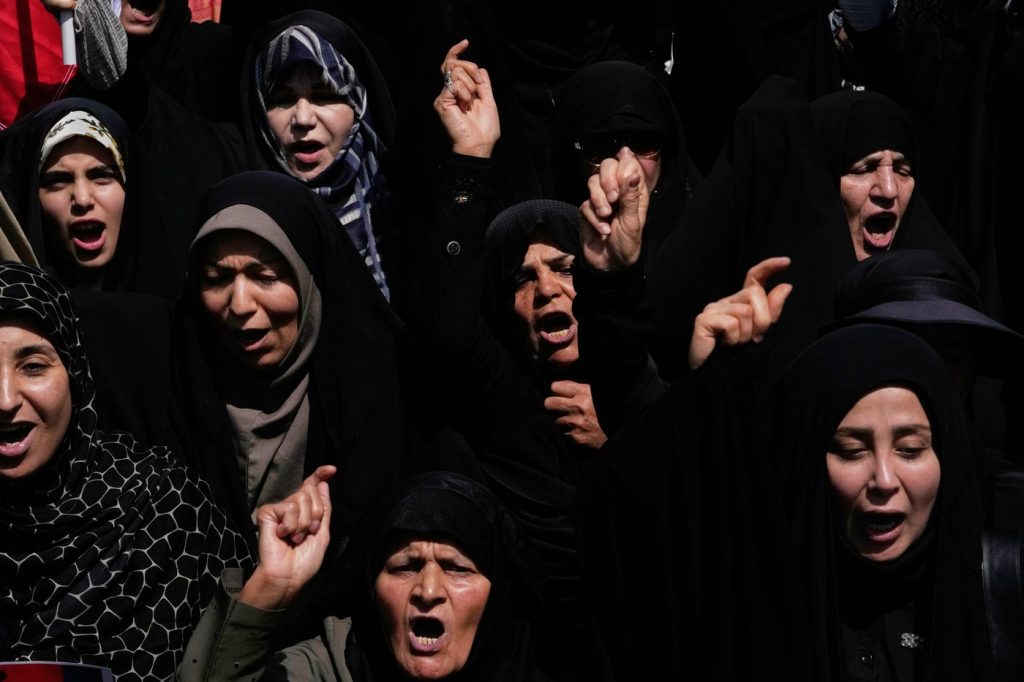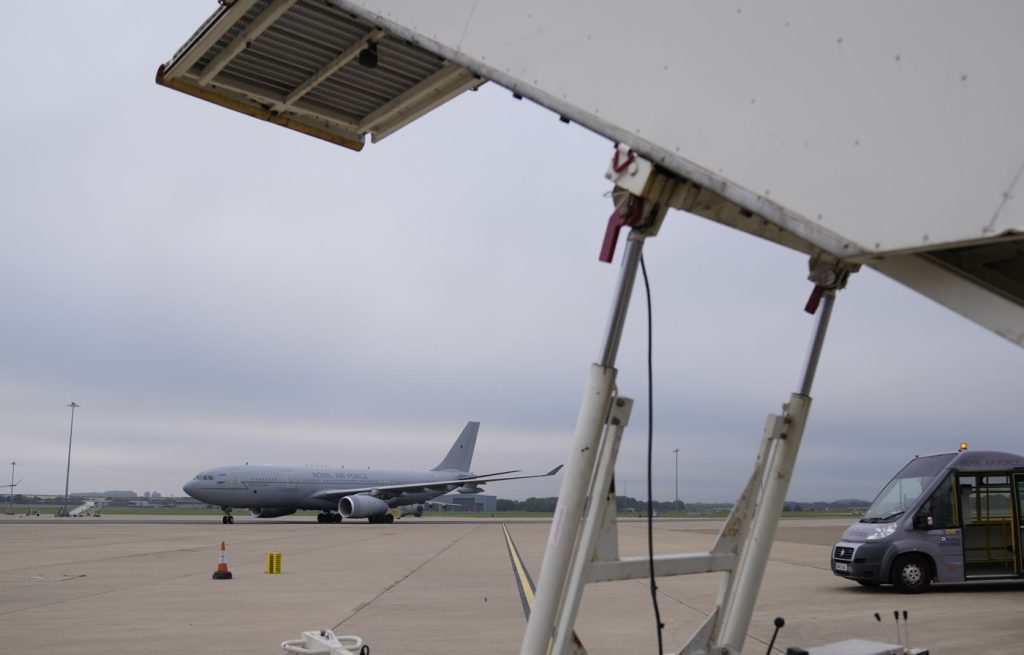TEL AVIV, Israel (AP) — In a significant escalation a week into the ongoing conflict, Israel and Iran exchanged military strikes on Friday as U.S. President Donald Trump considered potential American military involvement. Key European ministers convened with Iran's top diplomat in Geneva in a bid to de-escalate the hostilities. However, the initial face-to-face meeting between Western and Iranian officials lasted four hours and did not yield any immediate breakthroughs.
To allow for diplomatic efforts, President Trump announced that he would delay his decision for up to two weeks regarding U.S. participation in Israel’s air campaign against Iran. Any American military engagement would likely target Iran's underground Fordo uranium enrichment facility, which is deemed accessible primarily to the U.S. "bunker-buster" bombs.
Regardless of potential U.S. involvement, Israeli Prime Minister Benjamin Netanyahu emphasized that Israel's military operations against Iran would persist “for as long as it takes” to neutralize what he termed an existential threat posed by Iran's nuclear program and its arsenal of ballistic missiles. The Israeli military's top general confirmed readiness for a prolonged campaign.
As talks in Switzerland concluded, optimism lingered among European officials for future discussions. However, Iranian Foreign Minister Abbas Araghchi made it clear that Tehran would not engage in negotiations with the U.S. while Israeli attacks continued. "Iran is ready to consider diplomacy if aggression ceases," he stated.
Iran previously committed to limiting its uranium enrichment under a 2015 deal with world powers, which included the U.S., France, China, Russia, Britain, and Germany, in return for sanctions relief. Following Trump's withdrawal from the agreement during his first term, Iran escalated its uranium enrichment closer to weapons-grade levels and imposed restrictions on international inspections.
After Israel's airstrikes targeted numerous military installations in Iran, including missile manufacturing facilities, Iranian missile attacks were launched, with one hitting the northern city of Haifa and injuring at least 31 individuals. The conflict, which began on June 13, has reportedly resulted in at least 657 deaths in Iran, including 263 civilians, according to a Washington-based Iranian human rights organization. Iran retaliated by launching an estimated 450 missiles and 1,000 drones toward Israel, of which many were intercepted by Israel's advanced air defense systems. Nonetheless, attacks have resulted in the deaths of at least 24 individuals in Israel.
Concerns have increased regarding the hazards associated with a potential strike on Iran's nuclear reactors. Rafael Grossi, Chief of the U.N. nuclear watchdog, warned the U.N. Security Council that an attack on Iran's Bushehr nuclear power plant could lead to significant radioactive releases. Israel's current military focus has predominantly been on uranium enrichment facilities and other key sites, avoiding direct targets on active nuclear reactors.
Following airstrikes attributed to Israel, Grossi confirmed that there had been damage to key buildings at the Arak heavy water reactor facility, although it was not operational at the time. Despite the collateral damage often considered less severe at uranium enrichment sites than at full reactors, the risks remain a concern for experts.
Israeli warplanes conducted extensive attacks early Friday, targeting various sites, including missile storage facilities and a research institute in Tehran. Reports of explosions were noted across Iran, but the complete impact remains largely unverified due to ongoing internet blackouts in the country.
Despite the Israeli military's reported success in neutralizing a large share of Iran’s ballistic missile launch capabilities, several missiles still managed to strike Israeli territory, causing property damage but limited casualties in areas like Beersheba and Haifa. Emergency responses continued amid heightened tensions and military operations, as both nations prepare for further developments in this ongoing conflict. The situation remains complex, with prospects for peace negotiations appearing uncertain against a backdrop of mutual hostilities.












